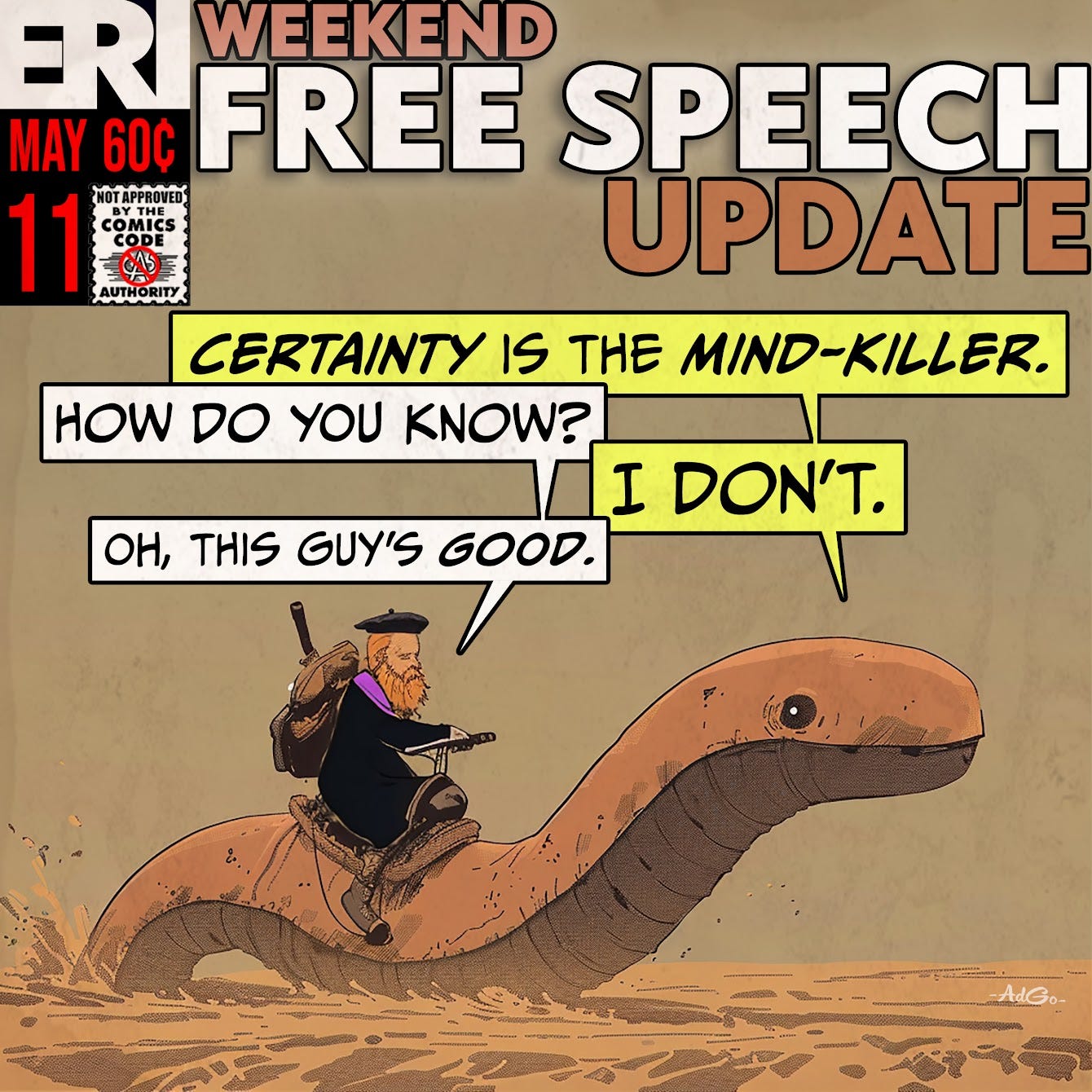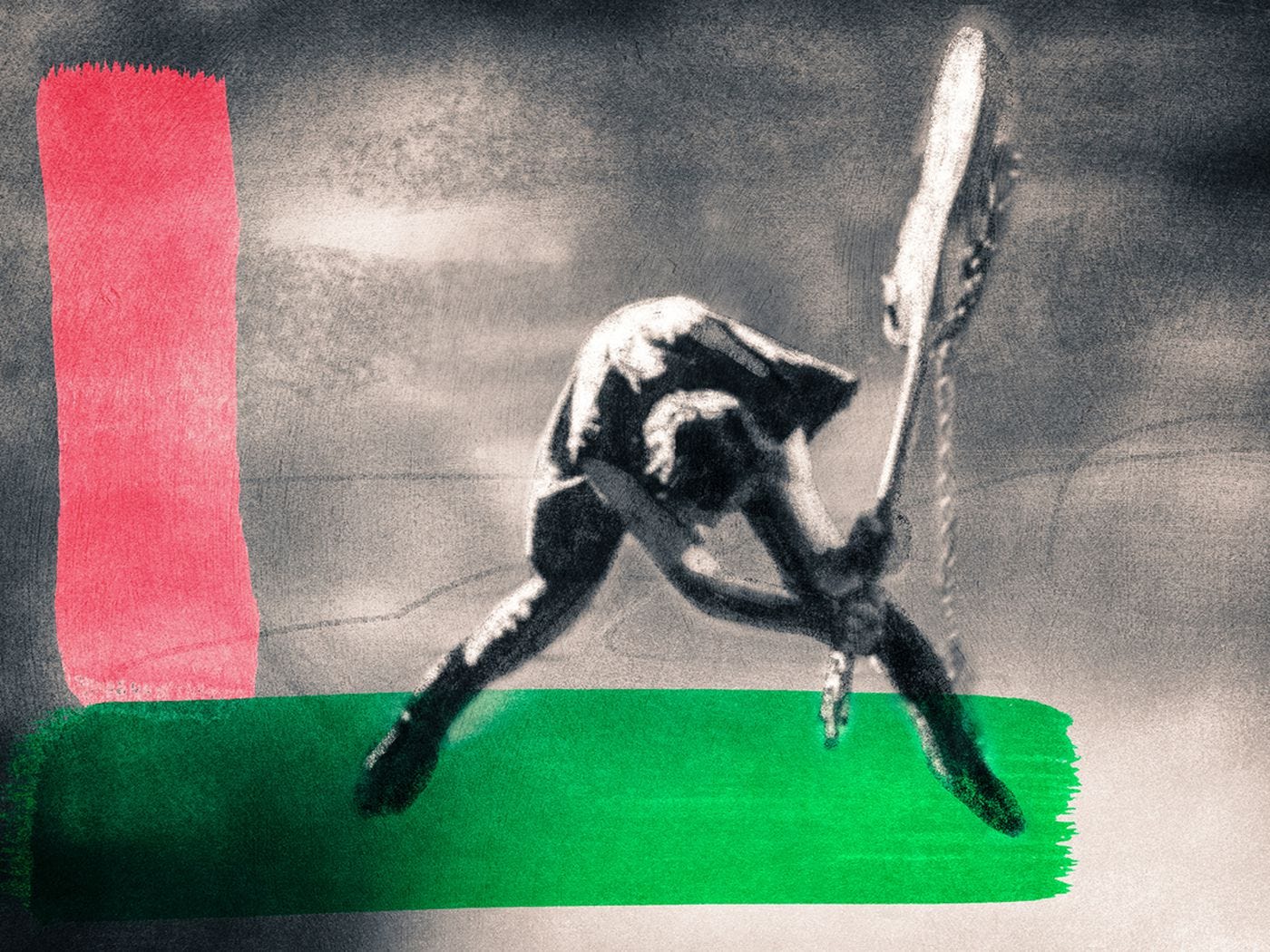‘Certainty is the mind-killer’ & the story behind my first-ever commencement address
Bringing you the latest free speech news (5/11/24)
Story of the week
Please forgive the longer-than-normal blurb for this weekend’s free speech update, but this was my first-ever commencement address and it was an interesting experience that I wanted to share.
Back in June of last year, I was offered an honorary PhD and invited to give the commencement address at the University of South Florida’s medical school for their 2024 graduation. I was beyond flattered and, of course, immediately said yes. In December, I started working on an address that I assumed would be 20 minutes or so. But I subsequently learned that the USF’s faculty senate had voted against my receiving the honorary doctorate.
The rationale was, apparently, that the Florida College System was a named plaintiff in FIRE’s lawsuit, Novoa v Diaz, which challenged the constitutionality of the Stop WOKE Act. I have a hard time believing that the faculty at USF was supportive of the Stop WOKE Act, however. It’s far easier to believe that they just don’t like me very much (probably for other free speech positions I and FIRE have taken), and used this supposed “conflict” as justification to scuttle awarding me an honorary PhD.
So that was a disappointment, but I was still being invited to give a speech and receive the Dean’s Honor, which I was excited about.
Then, when they finally got back to me about how long my address would be, they said three to five minutes!
So I scrapped everything I had been working on since December and decided to go with a much shorter version. I worked pretty hard on this. I've been trying to develop the skill of delivering a scripted talk (as opposed to an impromptu one or one where I simply follow a basic outline), something that does not come naturally to me, and I worked closely with Bob Ewing in preparation.
When I look at it, I can primarily see all the things I did wrong. I held onto the lectern and bent down rather than standing up straight (in my defense, I'm tall and the teleprompter was set for shorter people). I am also a little embarrassed that the last few lines of my speech didn't make it onto the teleprompter and I couldn’t remember them. As a result I awkwardly ended my remarks on the word "division" — not exactly the most inspiring closing word for a graduation address.
These are fairly small things you might not even notice if I didn’t point them out, but I think it’s important to show that we can be self-critical, tell ourselves that we'll do better next time, and still be proud of what we’ve done. Overall, the experience was pretty wonderful. I'd like to thank everyone at University of South Florida Health and all the students I got to meet — a really inspiring group, and very patient with my sci-fi nerdery.
This week in ERI
This week on ‘So to Speak’
This week on So to Speak: The Free Speech Podcast, Nico Perrino talked with Ken Stern, the author of the IHRA definition of anti-Semitism, about the Antisemitism Awareness Act.
This week in FIRE’s blog
The 8 First Amendment cases the Supreme Court will decide this term by Angel Eduardo , Darpana Sheth, and Josh Bleisch
This term has been another blockbuster, with the Justices poised to decide cases determining online speech rights and when government ‘jawboning’ crosses a constitutional line.
MIT stops using DEI statements in faculty hiring by Jessica Wills
Survey shows: Most Americans are concerned about the future of free speech by Sean Stevens
New FIRE poll: Americans equally skeptical Biden or Trump will protect First Amendment rights
Qualified Immunity isn’t just for police officers by Jeff Zeman and JT Morris
What student journalists need to know about covering campus protests by Dominic Coletti
Massachusetts town stifles ‘disparaging’ comments at town hall meeting concerning phony overtime billing by Stephanie Jablonsky
London Calling: Ronnie’s First Amendment Rundown
You’d think it would be obvious police can’t bust folks just for standing on their own property and asking the cops questions – or that it shouldn’t take a state supreme court reminder to that effect, but that’s where South Carolina’s justices found themselves in reversing an “interfering with a county law enforcement officer” conviction this week, explaining: “Jones stood on his own property merely questioning the deputies. When asked to step back from the location on his own property where he had been standing for the whole interaction, he refused. Seconds later, he was aggressively arrested after being tased. Under these facts, his conviction cannot stand.”
Litany of the month
In honor of Greg’s fabulous sci-fi-infused commencement address at USF, we at ERI present you with The Litany Against Certainty — riffing off of Dune’s Litany Against Fear and penned by FIRE Senior Writer & Editor Angel Eduardo:






“Neurosis is the inability to tolerate ambiguity.” -Sigmund Freud
So what were the last few lines of the speech that didn't make it? Well done compressing your talk into such a short time; the guy introducing you talked just about as long as you did!